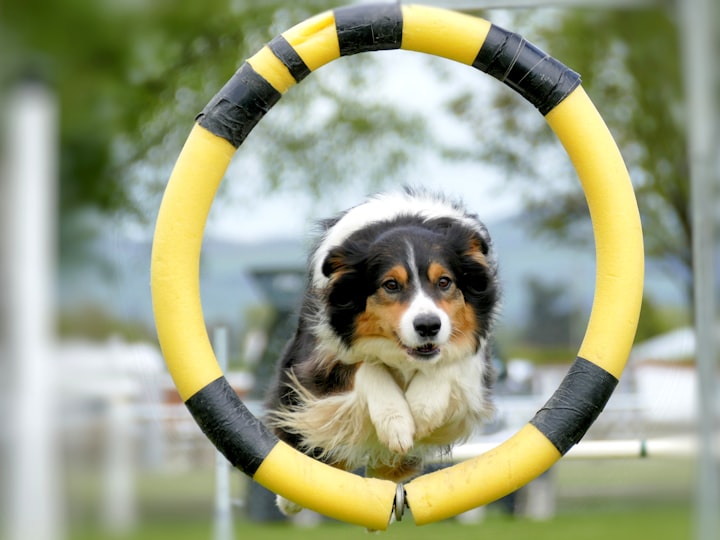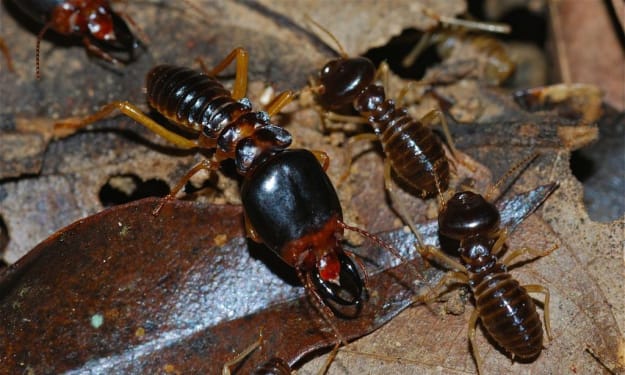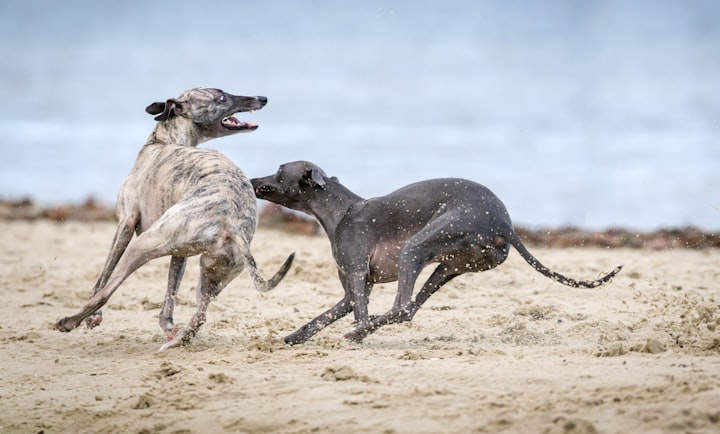
Should I neuter my dog?
For veterinary clinics, neutering is a routine operation, but does it make sense to neuter your dog? What is the difference between neutering and spaying? How much does it cost to neuter a dog? Here you will find all the information, as well as the advantages and disadvantages.
Pros and cons of neutering a dog:
✅ in favor
It is safe and permanent pregnancy prevention (which, by the way, is not reversible)
The disappearance of the symptoms of heat, such as bleeding or psychological pregnancies (in females)
The secretion of smegma in males (yellowish pus) is prevented
Protection from specific diseases such as breast cancer, testicular cancer, and prostate problems. Be that as it may, in females just when mutilation is early.
The reduction of aggressive behaviors related to sexual desire, such as aggression against other males or females in heat.
⛔ against
The general risk associated with invasive surgery
Intercession in the normal hormonal equilibrium of the creature with expansive ramifications for the body and psyche, particularly risky in early emasculations (hazard of infections of the outer muscle framework and stagnation of mental turn of events)
The tendency to overweight and obese (common in retriever, cocker, and beagle dog breeds)
An increased risk of urinary incontinence (especially in females of larger breeds such as Great Danes, Newfoundlands, Leonbergers, Boxers, Giant Schnauzers, Doberman Pinschers, etc.) and the development of other tumors
Changes in the structure of the coat (particularly in long-haired breeds) require a more complex toilet.
In which cases is it good to castrate?
Don't decide to neuter your dog lightly. To avoid unpleasant surprises or disappointments, let your veterinarian inform you about the advantages and disadvantages of the operation. He lets me explain the surgical procedure, the recovery process, and possible alternatives so you can weigh your choice well. Your veterinarian must be taken the time to get to know and examine your dog before giving you their recommendation. Neutering is not an ideal solution for all dogs. Each case is unique and the upsides of fixing are not in every case more than the detriments. In the end, it is the individual factors that are decisive, such as race, sex, age, weight, height, size, and social behavior. If you're not sure and you think your vet isn't giving you enough information, it's best to get a second opinion.
Neuter or spay?
Unlike castration, in which the ovaries or testicles are completely removed, in spaying, only the fallopian tubes or vas deferens are cut. This intervention is somewhat cheaper than castration, but it is also performed under general anesthesia. The reproduction of dogs is prevented, but the animal will remain sexually active after the operation because, unlike castrating, sterilization does not cause any hormonal, bodily, or behavioral changes. The females will continue to be in heat and the males will chase them during this time.
How much does it cost to neuter a dog?
The price is between 100 and 250 euros if it is a male and can cost between 200 and 300 euros for females. The price depends on several factors such as the sex and weight of the dog, the type of anesthesia, the geographical area, and the veterinary clinic.
How does the operation of neutering a dog take place?
For veterinarians, castration is a routine procedure, but do you know what the steps of this operation are?
Once all the preliminary examinations are completed, the veterinarian will arrange a date for the operation.
Like people, dogs need to fast for general anesthesia.
You must stop offering them food about twelve hours before the intervention. Before the date, take your canine friend for a walk so he can relieve himself.
The first thing that is done is to check that the dog is in good condition to be anesthetized.
After being sedated by intravenous injection, he is given an infusion and connected to an anesthesia monitor. In addition, a tube is put in to be connected to the anesthetic gas machine and the oxygen supply.
The dog is then prepared for the operation, the fur is removed from the area to be operated on, disinfected, and covered with sterilized cloths.
Contrasts between the mutilation of females and guys:
castration in females
In the bitch, the abdominal wall is opened with a cut through the skin, subcutaneous tissue, and musculature. Part of the fallopian tubes, veins, and arteries are tied off, and the ovaries are removed. This type of castration is called an ovariotomy. In very rare cases it is recommended to remove the entire uterus, which is known as an ovariohysterectomy.
After removal of the ovaries, the incision is closed with stitches. The sedative is stopped and the dog must remain under observation until he wakes up. As long as the dog is fully conscious and able to walk, you can take her home, with pain medication. The next day you have to do a follow-up at the vet. To protect the incision, you will need to wear a special belly suit until the stitches are removed about ten days later.
Castration in males
In guys, a cut is made in the skin over the scrotum. The testicles and epididymis are relocated and the spermatic cords and blood vessels are tied off. This makes it possible for both testicles to be removed through a single opening.
Males with very low scrotums should also be removed. In those rare cases in which the testicles do not descend into the scrotum (cryptorchidism), but are located in the inguinal canal or within the abdomen, another suitable access route must be chosen.
The wound is sutured after the intervention. Once the operation is finished, the anesthesia is stopped, but the dog must remain under observation until he wakes up. To prevent the male from opening his wound, he should wear an Elizabethan collar or bandage.
If you are going to castrate your dog, avoid any effort until the stitches have been removed, about ten days after the operation. For the injury to mend appropriately you can't extend it. Put off long excursions in nature for later. Also going up and down the stairs or jumping from the trunk or the sofa should be avoided for a while. After two weeks everything will be back to normal and nothing will get in the way of your sports activities.
Changes after neutering a dog
Complete removal of the testicles or ovaries results in a massive change in the animal's natural hormonal balance.
Heat, blood flow, and psychological pregnancies in females or smegma secretion in males, which poses major hygiene problems, are no longer a problem.
In long-haired breeds, the hair structure may change. The deep hair of the undercoat becomes denser and covers the upper coat of the dog, giving it an unkempt and dull appearance.
Increased appetite and reduced exercise in manyNeutered dogs cause them to become overweight.
Does neutering a dog protect him from cancer?
Fixing is once in a while essential for clinical reasons, which are typically the counteraction of malignant growth or different illnesses connected with sex chemicals. Maiming for sure diminishes the gamble of certain growths. In males, the risk of contracting testicular cancer and prostate diseases is reduced, and in females, suppuration of the uterus and other tumors (breast cancer).
This sounds good enough, but it is often overlooked that cancer prevention in females is only given by early castrations. To reduce the risk it is necessary to castrate the females before the first heat. Fixing after hotness or when they are grown-ups decreases the viability of malignant growth counteraction.
Be that as it may, early maiming can prompt outer muscle issues. In addition, it is said to increase the risk of other tumors: studies have shown that early castration appears to hurt the incidence of heart, spleen, and bone tumors.
Does castration change behavior?
Another important aspect of castration is the effects on the dog's behavior. The elimination of the reproductive organs not only brings bodily changes but also directly influences the mind and social behavior. It is above all those who have a male at home who opt for castration as a last option to the aggressive and restless behaviors caused by testosterone. A castrated male is indeed calmer in front of a female in heat, also competitive behavior with other males ceases to be a problem. The howls, barks, and attempts to escape driven by sexual desire do not occur when the dog has been neutered.
Notwithstanding, it is a misstep to believe that the maimed male is more amiable. Castration only influences behaviors related to sex hormones. The aggressive behaviors are the result of errors in education. The dog will not learn to pay attention by an operation. If you are having problems with your male dog, the first thing you should do is find out where the reactive behavior of the dog is coming from. Only if it is related to sexual desire, neutering can help, but it will not cause any change in general behavioral disorders such as territorial aggression or behavioral problems.
When is it advisable to castrate?
Considering the advantages and disadvantages, it is not surprising that castration is such a controversial topic. Dog lovers can have significant conversations concerning whether or not to fix a canine. While the absence of physical and psychological sexual symptoms is a real blessing, some warn about the possible influence on the dog's natural organism. In these discussions, it is easy to forget that there is no definitive answer to the question of whether or not a dog should be neutered because each case is different.
About the Creator
Abu Saleh
Content writer & Affiliate marketer. https://bestpetslover.com






Comments
There are no comments for this story
Be the first to respond and start the conversation.